
International Baccalaureate (IB) Primary Years Programme is a curriculum framework designed for students aged 3 to 11. It prepares students for the intellectual challenges of further education and their future careers, focusing on the development of the whole child as an inquirer, both in the classroom and in the world outside.
10 Reasons of 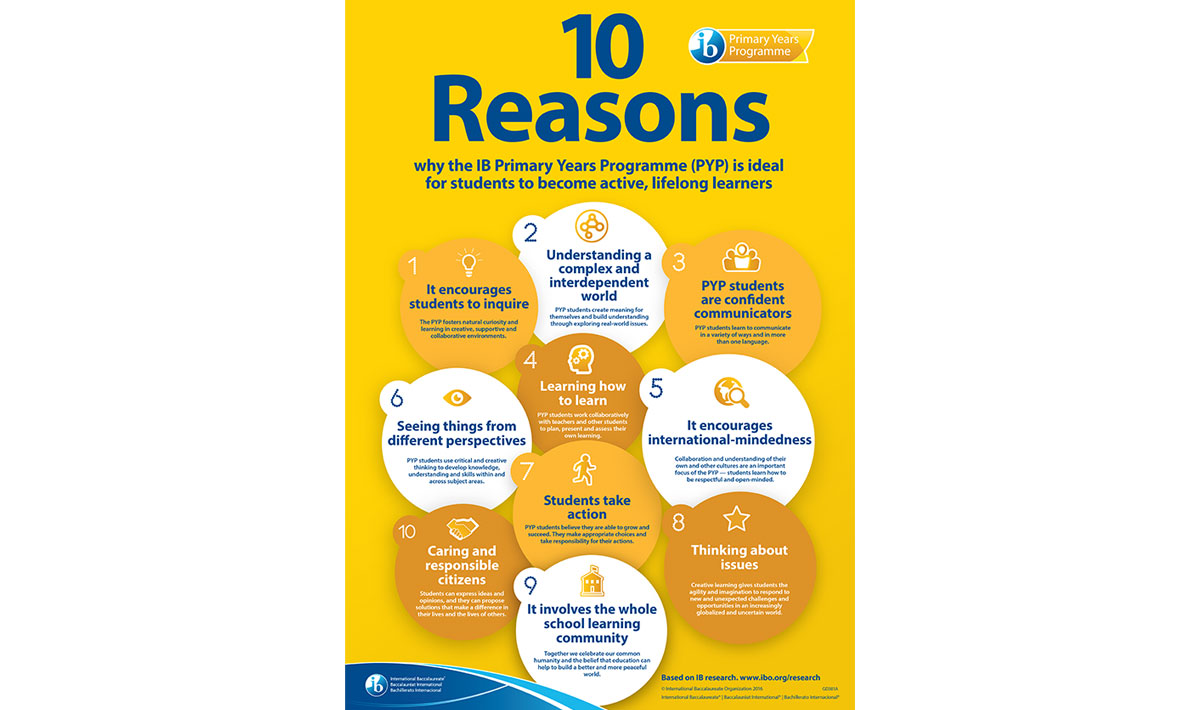
Our classroom curriculum addresses the children's social, physical, cultural and ethical development while giving them a strong foundation in all the major areas of knowledge.
The curriculum consists of five essential elements:
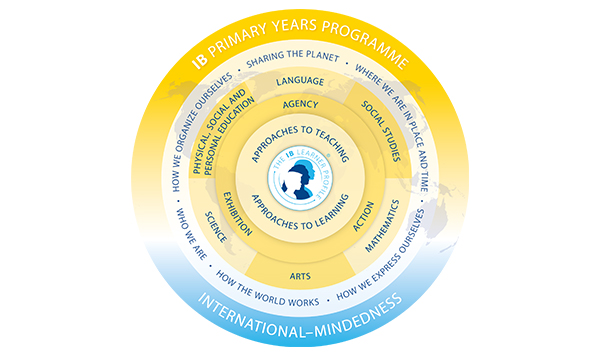






























By choosing to implement the IB Primary Years Programme, schools will develop students’ academic, social and emotional well being, focusing on international-mindedness and strong personal values.
The IB Primary Years Programme nurtures independent learning skills, encouraging every student to take responsibility for their learning. The programme incorporates local and global issues into the curriculum, asking students to look at six related, transdisciplinary themes and to consider the links between them.
The International Baccalaureate (IB) Primary Years Programme (PYP) is underpinned by six transdisciplinary themes around which learning is planned and allows to contextualise learning in meaningful ways. These globally significant themes provide learners with opportunities to explore:
These themes are selected for their relevance to the real world. These are Transdisciplinary because they focus on issues that go across subject areas.
The curriculum framework allows in depth understanding of skills and concepts, and creates opportunities for the learners to take mindful, authentic and responsible action as an outcome of their learning.
The PYP at Ryan Global School is designed to nurture the whole child by:
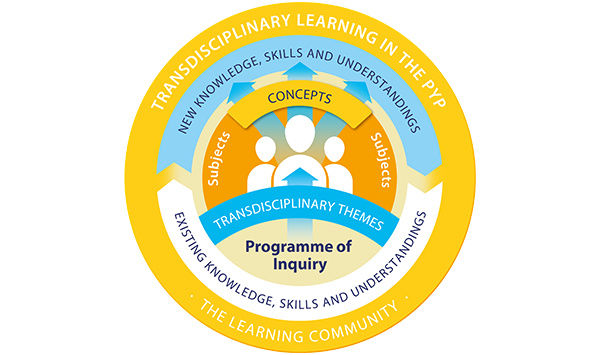
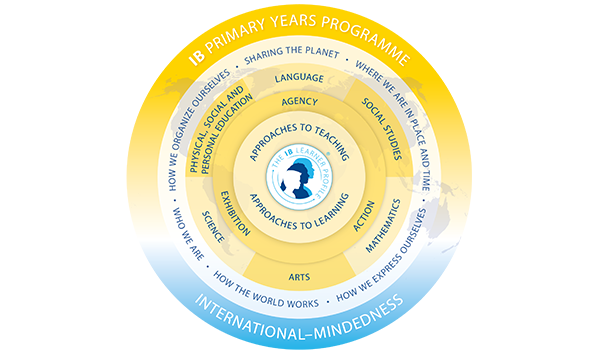
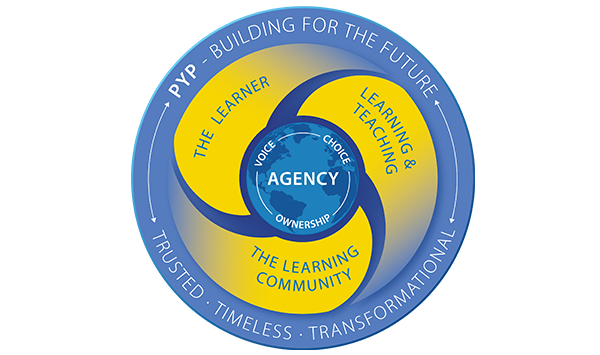
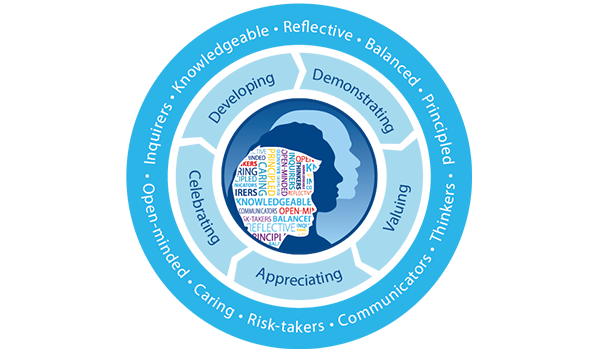 © International Baccalaureate Organization 2025
© International Baccalaureate Organization 2025

PRINCIPLED
Our students act with integrity and honesty, with a strong sense of fairness, justice and respect for the dignity of the individual, groups and communities. They take responsibility for their own actions and the consequences that accompany them.

COMMUNICATORS
Our students understand and express ideas and information confidently and creatively in more than one language and in a variety of modes of communication. They work effectively and willingly in collaboration with others.

RISK TAKER
Our students approach unfamiliar situations and uncertainty with courage and forethought, and have the independence of spirit to explore new roles, ideas and strategies. They are brave and articulate in defending their beliefs.

CARING
Our students show empathy, compassion and respect towards the needs and feelings of others. They have a personal commitment to service, and act to make a positive difference to the lives of others and to the environment.

INQUIRER
Our students develop their natural curiosity. They acquire the skills necessary to conduct inquiry and research and show independence in learning. They actively enjoy learning and this love of learning will be sustained throughout their lives.

OPEN MINDED
Our students understand and appreciate their own cultures and personal histories, and are open to the perspectives, values and traditions of other individuals and communities. They are accustomed to seeking and evaluating a range of points of view, and are willing to grow from the experience.

KNOWLEDGEABLE
Our students explore concepts, ideas and issues that have local and global significance. In doing so, they acquire in-depth knowledge and develop understanding across a broad and balanced range of disciplines.

THINKERS
Our students exercise initiative in applying thinking skills critically and creatively to recognize and approach complex problems, and make reasoned, ethical decisions.

BALANCED
Our students understand the importance of intellectual, physical and emotional balance to achieve personal well-being for themselves and others.

REFLECTIVE
Our students give thoughtful consideration to their own learning and experience. They are able to assess and understand their strengths and limitations in order to support their learning and personal development.
Students who are in their final year of the programme are expected to carry out an extended, collaborative inquiry project, known as the exhibition.
The exhibition represents a significant event in the life of both the school and student. It is an opportunity for students to exhibit the attributes of the lessons they have been taught over the years and to showcase their learnings from the same. It is a stepping stone for students transitioning from PYP to the higher grades.
Schools are given considerable flexibility in their choice of real-life issues or problems to be explored or investigated in the exhibition.
The PYP Exhibition provides students with an authentic platform to:
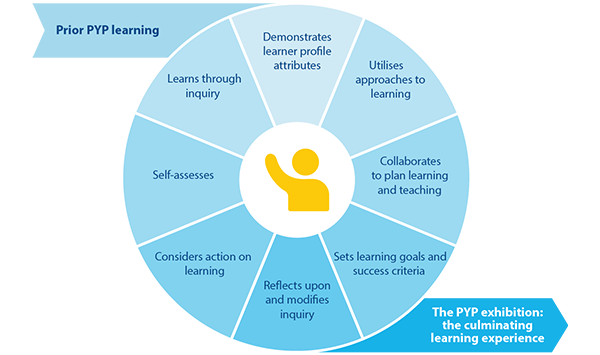
At Ryan Global School, the PYP Exhibition is more than a culminating event — it is a celebration of student voice, choice, and ownership. Each year, the exhibition evolves to reflect the unique journey of our learners, teachers, and community, making it a truly distinctive and meaningful experience.
As our engagement with the PYP has grown, we have continually empowered students to take greater independence and responsibility at every stage of the process. What began as a guided experience has now transformed into a student-led exhibition, where learners confidently plan, inquire, collaborate, and present their ideas with passion and purpose.
This evolution highlights our strong belief in nurturing agency and preparing students to become curious, compassionate, and internationally minded young leaders who are ready to make a difference in the world.










The Programme of Inquiry is a curriculum framework that facilitates inquiry into local and global issues and opportunities by the learners through the six Transdisciplinary Themes:
The curriculum framework allows in depth understanding of skills and concepts, and creates opportunities for the learners to take mindful, authentic and responsible action as an outcome of their learning.
For more details, Click here